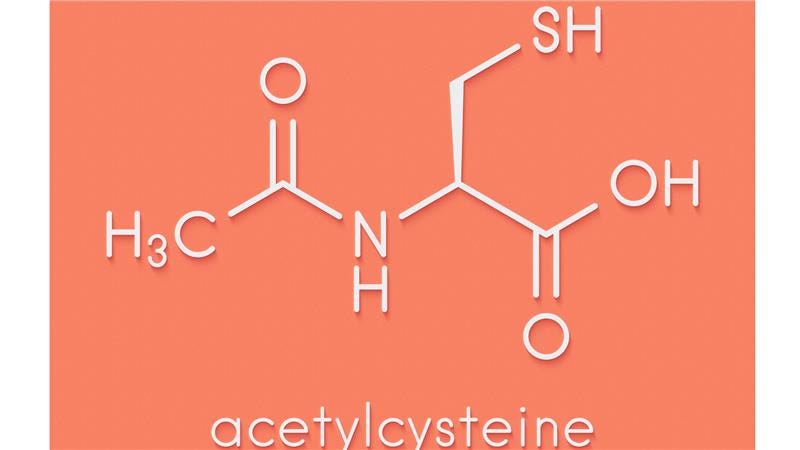
N-acetylcysteine (NAC): Targeted Support for Year-Round Wellness
N-acetylcysteine (NAC), a powerful precursor to glutathione, has long been recognized for its crucial role in supporting various health systems. As research continues to highlight NAC’s extensive benefits, its applications in promoting respiratory health, liver function, and immune support make it a valuable tool in clinical practice. Whether aiding in maintaining cellular health or supporting detoxification processes, NAC remains a cornerstone supplement for practitioners seeking comprehensive solutions for their patients.
Table of Contents
- How NAC Supports Key Body Systems
- Recent Discoveries in NAC Research
- NAC and Respiratory Wellness
- NAC and Liver Health
- NAC and Immune Function
- FAQs about N-acetylcysteine (NAC)
- Conclusion – NAC’s Role in Comprehensive Health Support
How NAC Supports Key Body Systems
NAC is an amino acid derivative that serves as a precursor to sulfur-containing compounds, like glutathione, vital for detoxification and cellular protection. NAC is a thiol or sulfhydryl-containing compound with rapid absorption before being deacetylated and metabolized in the intestines and liver, allowing for increased production of glutathione, one of the body's most important compounds for maintaining healthy cellular function. 1,2 By donating its sulfhydryl group, NAC can readily bind to and neutralize potentially harmful substances and metabolites, helping the body to maintain the integrity of cells by supporting mechanisms that may enhance immune function.1,2
NAC's potential benefits extend to multiple body systems, including:
- Respiratory health
- Liver function
- Immune response
Recent Discoveries in NAC Research
Scientists and researchers are continually uncovering new insights into the potential benefits of NAC. Studies have explored its impact on a wide range of health areas, especially related to respiratory, liver, and immune health.
NAC and Respiratory Wellness
NAC has been used extensively to support lung health, mainly to thin and loosen mucus in the respiratory tract, supporting clear airways and easier breathing. Once metabolized, NAC's sulfhydryl group interacts with the disulfide bonds in mucoprotein. NAC can also stimulate ciliary and gastro-pulmonary vagal reflexes, improving the removal of mucus from the airways, and helping to support lung function. 1,2
Long-term NAC supplementation has been shown to support overall respiratory wellness, helping individuals maintain healthier lungs, particularly during seasonal shifts or in environments with airborne pollutants. Additionally, NAC helps the immune system target persistent bacterial colonies more effectively by breaking down the disulfide bonds in mucous glycoproteins, reducing the barriers that protect these colonies. 1
NAC and Liver Health
NAC has been recognized for its potential to support liver health. One of NAC's most recognized benefits is its ability to produce more glutathione to support natural detoxification pathways, and the liver’s ability to filter toxins and waste products from the bloodstream.
NAC's role in liver detox is especially valuable for individuals exposed to various environmental toxins. Experimental studies show that, like other thiols, common in foods like garlic, NAC's liberated thiol groups can bind to reactive metal ions, including copper and iron, and the heavy metals cadmium, mercury, and lead, forming complexes that the body can more easily excrete. It helps maintain the body's natural ability to process these substances efficiently, supporting overall cellular health and reducing the burden on detox pathways.
NAC is also recognized for its role in addressing acetaminophen overdose. Acetaminophen overdose can deplete glutathione in the liver, leading to potential damage. NAC is used to help replenish glutathione, providing crucial support for the liver in these critical situations. The glutathione-boosting action of NAC helps protect the liver from stress caused by exposure to environmental toxins, making it a go-to supplement for liver health maintenance. 1
NAC and Immune Function
The immune system is a complex network that defends the body against both seasonal and acute challenges. NAC has been studied for its potential to support healthy immune function by boosting glutathione levels and is widely recognized for its role in supporting balanced immune responses. Increased glutathione levels help maintain healthy nitric oxide levels, protecting it from damage and storing it for sustained use, which is particularly important in maintaining vascular health as well as supporting immune function.
Additionally, NAC helps the immune system respond appropriately to challenges by disrupting problematic, runaway chemical cascades that trigger an overproduction of the immune-signaling cytokines TNF-α and interleukins. 1
This balancing effect makes NAC an essential tool for supporting immune resilience during increased stress or exposure to environmental factors. NAC also supports the body's ability to recover from immune challenges by maintaining healthy detoxification pathways crucial for overall immune health. 1,2 The dual action of immune and liver support makes NAC an ideal supplement for the immune system, especially during seasonal transitions and colder months.
FAQs about N-acetylcysteine (NAC)
How does NAC support immune health?
NAC promotes the production of glutathione, a vital sulfur-containing compound that plays a key role in promoting a balanced immune response and supporting the body's natural defenses, especially during periods of increased stress. 1,2
Can NAC interact with other supplements or medications?
NAC may interact with certain medications or supplements. It is essential to consult with a healthcare provider before taking NAC, especially if managing chronic health conditions or taking other medications. 1,2
Is NAC safe for long-term use?
NAC is generally considered safe for long-term use when taken within recommended doses. However, discussing long-term supplement use with your healthcare provider is always best.
Conclusion: NAC’s Role in Comprehensive Health Support
N-acetylcysteine (NAC) is a versatile supplement offering wide-ranging support across multiple body systems. Significant research highlights NAC's various benefits, it remains a cornerstone supplement for practitioners and health-conscious consumers. By boosting glutathione levels, NAC helps strengthen the body's defenses and maintain cellular health, especially during periods of increased stress. 1,2 Whether looking for long-term wellness support or targeted benefits during increased stress, NAC is an excellent addition to almost any health regimen.
‡ The products and claims made about specific products on or through this Site have not been evaluated by the United States Food and Drug Administration and are not approved to diagnose, treat, cure, or prevent disease.
‡ This Site is not intended to provide diagnosis, treatment, or medical advice. Products, services, information, and other content provided on this Site, including information that may be provided directly or by linking to third-party websites are provided for informational purposes only. Please consult accredited healthcare professional organizations, evidence-based herbal monographs, and published clinical research regarding any medical or health-related diagnosis or treatment options.
_________________________________________
References
- Tenório MCDS, Graciliano NG, Moura FA, Oliveira ACM, Goulart MOF. N-Acetylcysteine (NAC): Impacts on Human Health. Antioxidants (Basel). 2021;10(6):967. Published 2021 Jun 16. doi:10.3390/antiox10060967. Available at: https://pubmed.ncbi.nlm.nih.gov/34208683/
- N-acetylcysteine (NAC). Altern Med Rev. 2000;5(5):467-471. Available at: https://altmedrev.com/wp-content/uploads/2019/02/v5-5-467.pdf
Jenny Perez is an herbal educator, researcher, and writer who has been immersed in nutrition and botanical medicine for more than twenty years. She has created curriculum, content, and educational materials for Premier Research Labs, Quantum Nutrition Labs, the American Botanical Council, and Bastyr University’s Botanical Medicine Department, where she was Adjunct Faculty, Herb Garden Manager, and Director of the Holistic Landscape Design certificate program.









